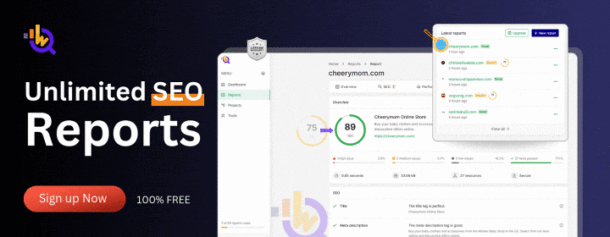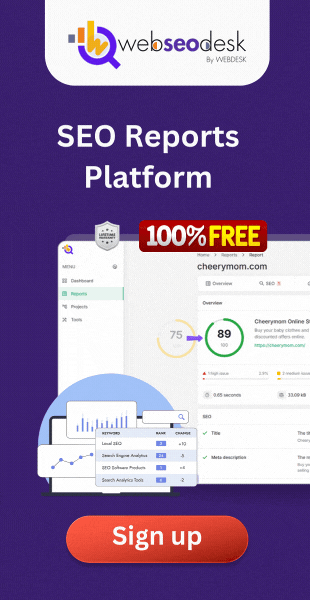Increasing the exposure of your website and raising its rating on search engines depends on search engine optimization, or SEO. Even with the best of intentions, though, many marketers and website owners make typical SEO errors that could lower their position and general online profile. To guarantee you get the best possible results in [Year], we will discuss in this post the main SEO mistakes to avoid.
- Stuffing keywords
One of the most often occurring SEO errors is keyword stuffing, or inappropriate overuse of terms. Search engines used to rank websites higher in the past for containing often occurring keywords on their pages. Search engines like Google, however, have evolved and now give user experience and pertinent content top priority above too heavy keyword use.
Emphasize employing keywords naturally and appropriately rather than forcing them into your work. Try for a keyword density of between 1 and 2%, then ensure your material makes sense. Maintaining a genuine tone also depends on synonyms, keyword variants, and long-tailed keywords.
- Ignoring Mobile Efficiency
Mobile optimization has become a major ranking consideration as more people access websites via mobile devices. Ignoring the design of a mobile-friendly website could lower your search engine optimization results. Google ranks your site based on its mobile version using its mobile-first indexing.
Make sure your website is responsive—that is, it changes and performs as expected on several screen sizes—to avoid this error. Use Google’s Mobile-Friendly Test tool to test your site and enhance any element compromising mobile device user experience.
Both user experience and SEO depend on page load speed; hence, it should not be ignored. Search engines utilize bounce rates and user engagement—two things slow-loading pages can boost or reduce—to rank websites. Search engines probably punish a page that loads too slowly, which would affect its rating.
Compress pictures, turn on browser caching, and reduce the use of heavy scripts to increase the load speed of your website. Analyze the performance of your website and obtain suggestions for development using Google PageSpeed Insights.
- Leveraging Duplicate Content
Blocks of material that show up on several pages of your website or across several websites are known as duplicate content. Search engines may struggle to decide which page should rank higher when they come across duplicate material, therefore affecting the visibility and ranking for both pages.
Make sure every page on your website offers something original to prevent this error. Use canonical tags to indicate to search engines which page should be regarded as the main one if you have to use the same material across pages—that is, product descriptions.
- Denying User Experience (UX)
Nowadays, SEO depends much on user experience (UX). Websites with a strong user experience—that is, those with simple navigation, unambiguous calls to action, and quick loading times—have top priority for search engines. Your SEO will be impacted by a website that irritates users with inadequate UX probably having reduced engagement and greater bounce rates.
Emphasize building a clean, simple design, maximize the navigation of your website, and ensure that users may rapidly locate the required content to enhance UX. A user-friendly website helps guests to stay longer, so enhancing the search engine results performance of your page.
- Not Maximizing for Show Notes
At the top of some Google search results, featured snippets—direct solutions to users’ questions—show up as boxed content. Maximizing for featured snippets will increase your profile and draw more natural visitors. Many websites, meanwhile, neglect to emphasize this worthwhile SEO potential.
To maximize highlighted snippets, find popular questions about your area and provide material that succinctly and clearly addresses those issues. Structured data—that is, schema markup—helps search engines grasp your material and raises your chances of getting highlighted in a snippet.
- Insufficient backlinks of quality
One of the most crucial ranking aspects in SEO is backlinks from credible, powerful websites. Still, many people running websites ignore the need to create excellent backlinks. Poor-quality or useless backlinks could compromise your efforts at SEO and maybe cause search engine penalties.
Pay particular attention to obtaining backlinks from credible, pertinent sources. This can call for guest blogging, influencer outreach, or producing shareable material someone else wants linked to. Steer clear of behaviors like purchasing backlinks or engaging in link programs since these might result in penalties.
- SEO is not a one-time endeavor; it calls for ongoing observation and improvement. Many website owners overlook checking their SEO success or evaluating the outcomes of their work. Regular analysis helps you to know what is functioning or where development is required.
Track user activity, traffic, and ranks of your website with Google Analytics and Google Search Console. Review your performance often to find places for development and modify your plan in line with this.
- Denying Local SEO
Ignoring local SEO is a big blunder if you run a local company. Local SEO lets you draw clients from your particular location. Ignoring maximizing your website for local searches may cost you important traffic and sales possibilities.
Make sure your company shows up on Google My Business and other pertinent local directories to boost local SEO. Add location-based keywords to your material, make your website local search friendly, and inspire customer reviews to raise your local search results.
In essence,
Reducing these typical SEO errors will enable your website’s visibility, user experience, and general SEO performance to be better. Your ranks will increase, and more natural visitors will be drawn in [Year] if you concentrate on quality content, maximize for mobile, speed up your website, and gather quality backlinks. Maintaining your competitiveness requires constant monitoring of the performance of your site and keeping your SEO strategy current.












0 Comments